The master's eye is the best fertilizer
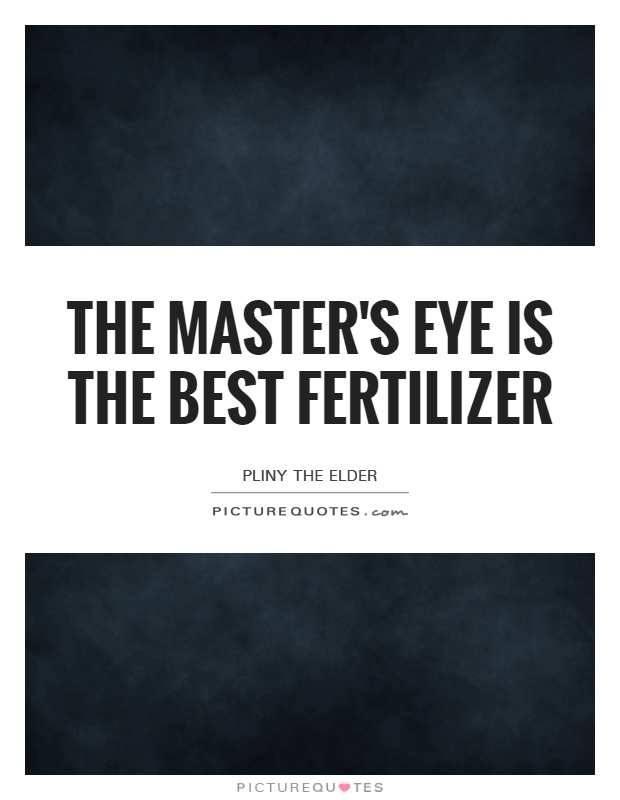
The master's eye is the best fertilizer
In the context of Pliny the Elder, the phrase "The master's eye is the best fertilizer" takes on a deeper meaning that goes beyond just the literal interpretation of the words. Pliny the Elder, a Roman author, naturalist, and philosopher, was known for his extensive knowledge of the natural world and his writings on a wide range of topics, including agriculture and gardening.Pliny believed that a master's careful attention and supervision were essential for the success of any endeavor, including the cultivation of plants. He understood that a skilled gardener or farmer who closely monitored and nurtured their crops would ultimately yield a better harvest than one who neglected their duties. In this sense, the master's eye serves as a metaphor for the watchful and attentive care that is necessary for the growth and development of plants.
Pliny's writings on agriculture and gardening emphasize the importance of proper cultivation techniques, including the use of fertilizers to enrich the soil and promote healthy plant growth. He recognized that the quality of the soil and the nutrients available to the plants were crucial factors in determining the success of a crop. By carefully tending to the needs of the plants and providing them with the necessary nutrients, a master gardener could ensure a bountiful harvest.
The phrase "The master's eye is the best fertilizer" can also be interpreted as a reminder of the power of observation and knowledge in the cultivation of plants. Pliny understood that a skilled gardener who was attuned to the needs of their plants and understood the intricacies of the natural world would be better equipped to nurture their crops to maturity. By closely observing the growth patterns of the plants, the gardener could make informed decisions about how best to care for them and ensure their health and vitality.
Overall, in the context of Pliny the Elder, the phrase "The master's eye is the best fertilizer" serves as a reminder of the importance of attentive care, knowledge, and observation in the cultivation of plants. It underscores the idea that a skilled and knowledgeable gardener who closely monitors and nurtures their crops will ultimately achieve the best results.
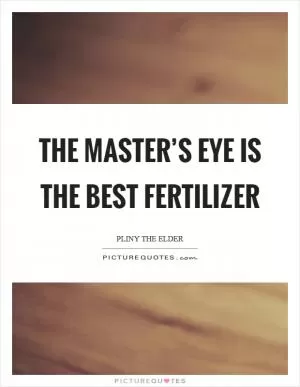
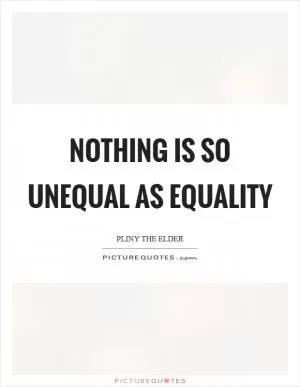







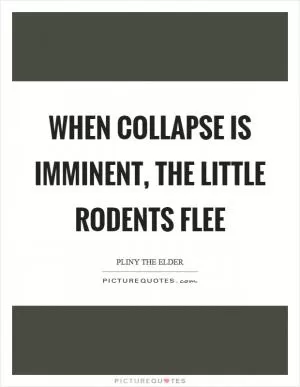

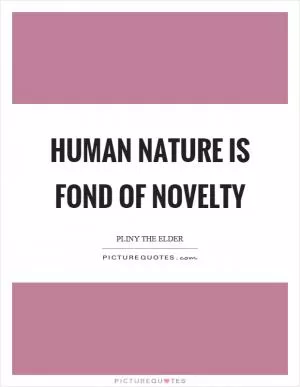
 Friendship Quotes
Friendship Quotes Love Quotes
Love Quotes Life Quotes
Life Quotes Funny Quotes
Funny Quotes Motivational Quotes
Motivational Quotes Inspirational Quotes
Inspirational Quotes